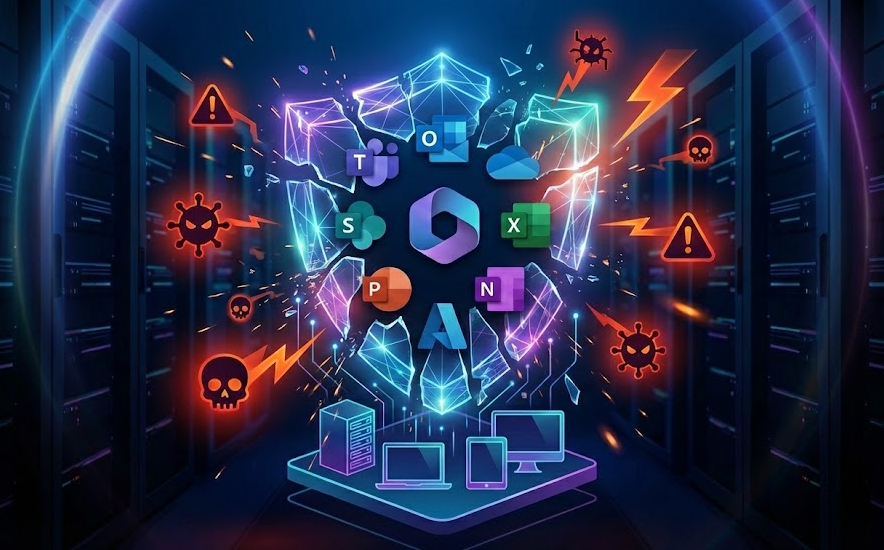Are you PCI Compliant? Why is Matters
If your business processes, stores, or transmits credit card data, PCI compliance isn’t just a technical requirement; it’s a business necessity.
Yet, many small and medium-sized businesses (SMBs) remain unaware of what PCI compliance entails, why it matters, and how they can achieve it. This guide will break down the essentials of PCI compliance, its importance, and how a technology partner can help your business stay on the right track.
- PCI compliance is essential for businesses that process, store, or transmit credit card data, ensuring that payment information is securely handled to prevent fraud and data breaches.
- Non-compliance can result in significant financial penalties, legal liabilities, and damage to your business's reputation, potentially leading to loss of payment processing privileges.
- Cyber insurance works alongside PCI compliance, offering financial protection against breach-related costs, legal fees, and potential fines, while often requiring businesses to meet compliance standards.
- SMBs should work with a managed IT provider to help implement the necessary security solutions, conduct risk assessments, and maintain ongoing compliance to safeguard both their business and customer data.
Achieving and maintaining PCI compliance not only protects your business but also enhances customer trust, ensuring long-term success in a digital economy.
What Is PCI Compliance?
PCI DSS (Payment Card Industry Data Security Standard) is a set of security standards designed to ensure that all companies that accept, process, store, or transmit credit card information maintain a secure environment. These standards were developed by major credit card brands like Visa, MasterCard, and American Express to reduce credit card fraud.
The PCI DSS is divided into 12 core requirements that focus on securing systems, protecting cardholder data, and regularly monitoring compliance. These include:
- Installing and maintaining a firewall.
- Using strong, unique passwords.
- Protecting stored cardholder data.
- Encrypting transmission of cardholder data across open networks.
- Regularly updating anti-virus software.
- Maintaining secure systems and applications.
- Restricting access to cardholder data.
- Assigning unique IDs to system users.
- Restricting physical access to cardholder data.
- Tracking and monitoring all network access and cardholder data access.
- Regularly testing security systems.
- Maintaining a security policy for all personnel.

Why PCI Compliance Matters for SMBs
1. Legal and Financial Risks
Non-compliance can lead to heavy fines from payment processors, which can range from $5,000 to $100,000 per month. For SMBs, this can be devastating. Additionally, you may face lawsuits if a data breach occurs due to non-compliance.
2. Customer Trust
A single data breach can erode customer confidence in your business. Demonstrating compliance reassures customers that their payment information is secure.
3. Fraud Prevention
PCI compliance reduces the risk of data breaches and cyberattacks, which are costly to mitigate and can damage your reputation.
4. Operational Efficiency
By adhering to PCI standards, your business is likely to improve its overall IT infrastructure, reducing vulnerabilities and increasing efficiency.
 IT PROTECT includes a risk assessment to help you identify and evaluate potential risks. By understanding these risks and implementing a plan to address them, achieving PCI compliance becomes much simpler. Discover how IT PROTECT can support your business: https://cloudmatrixit.com/it-protect
IT PROTECT includes a risk assessment to help you identify and evaluate potential risks. By understanding these risks and implementing a plan to address them, achieving PCI compliance becomes much simpler. Discover how IT PROTECT can support your business: https://cloudmatrixit.com/it-protect
Risks of Not Being Compliant
Failing to meet PCI DSS requirements can result in serious consequences for your business. The risks go beyond the few listed here, so it's important to know what those are.
-
Legal and Financial Penalties
Non-compliance can lead to fines ranging from $5,000 to $100,000 per month, imposed by payment processors or banks. For SMBs, these penalties can quickly become unmanageable. -
Lawsuits and Liability
If a breach occurs and customer data is exposed, your business may face legal action from customers, payment processors, or both. -
Increased Fraud Exposure
A lack of compliance makes it easier for hackers to access cardholder data, leading to financial losses for both your customers and your business. -
Loss of Payment Processing Privileges
Processors may terminate your ability to accept card payments, severely impacting your business operations. -
Reputational Damage
Customers are unlikely to trust a business that cannot safeguard their sensitive data. The loss of trust often leads to customer churn and difficulty acquiring new clients.

The Role of Cyber Insurance in PCI Compliance
Cyber insurance has become an essential safeguard for SMBs, providing financial protection and support in the event of a cyberattack. Here’s how it connects to PCI compliance:
1. Covers Breach-Related Costs
If your business experiences a data breach, cyber insurance can help cover:
- Notification costs for affected customers.
- Legal fees and settlements.
- Fines and penalties related to non-compliance (though some policies may exclude these).
- Costs associated with forensic investigations and restoring systems.
2. Encourages Compliance
Many cyber insurance providers require businesses to meet certain security standards, including PCI compliance. This makes compliance not only a protective measure but also a prerequisite for obtaining coverage.
3. Reduces Financial Exposure
Even with strong security measures in place, no system is completely immune to attacks. Cyber insurance acts as a financial safety net, helping your business recover without bearing the full brunt of breach-related costs.
4. Provides Risk Management Services
Most cyber insurance policies offer access to resources like breach response teams, legal counsel, and IT forensic experts, which can be invaluable in the aftermath of an incident.
Why PCI Compliance and Cyber Insurance Are Both Necessary
While PCI compliance is critical for preventing breaches, cyber insurance is essential for mitigating the financial fallout of incidents that do occur. Together, they provide a robust defense:
- PCI compliance reduces the likelihood of breaches by addressing vulnerabilities.
- Cyber insurance ensures your business can survive financially if a breach happens despite your best efforts.
For SMBs, this combination is particularly important. Smaller businesses often lack the resources to recover from a major security event without support.
How a IT PROTECT can help with PCI Compliance and solve a lot of technology challenges in the process
For SMBs, achieving and maintaining PCI compliance can feel overwhelming. A managed IT provider (like us) offers expertise, tools, and ongoing support to simplify the process and satisfy the requirements to be compliant.
1. Risk Assessments and Gap Analysis
A managed IT provider will perform a detailed audit of your current systems to identify gaps in compliance. This ensures your business understands what needs to be addressed.
2. Security Solutions
We can implement and manage tools that align with PCI requirements, including:
- Firewalls and intrusion detection systems
- Endpoint protection and anti-virus solutions (EDR/MDR)
- Secure Wi-Fi networks
- Multifactor Authentication
- Data Backups
3. Access Control
We can help you set up role-based access controls to restrict who can view or interact with sensitive payment data, ensuring compliance with PCI guidelines.
4. Regular Monitoring and Testing
PCI compliance isn’t a one-and-done task. Our team conducts regular system monitoring, vulnerability scans, and penetration tests to ensure ongoing security.
5. Policy Development
A managed IT provider helps businesses establish and enforce comprehensive security policies, including training your employees on how to handle cardholder data securely.
6. Assistance With Audits
If your payment processor requires you to complete a PCI DSS self-assessment questionnaire (SAQ) or undergo an audit, we guide you through the process to ensure accuracy and compliance.
Are You Compliant?
When you break it all down, the entire point of PCI compliance is to protect your business, your company data, and the data you store on your clients. Many businesses mistakenly believe that they are too small to be targeted by cybercriminals or too insignificant to worry about compliance. However, about half of cyberattacks target small businesses, and the financial consequences can be far-reaching. Waiting until after a breach occurs is not an option. Non action is costing your business it more than one way. Taking proactive steps now can save your business from costly fines and reputational damage.
Let's get your business compliant by providing the IT support you need and a cybersecurity platform your business can't do without. Reach out for a chat!



